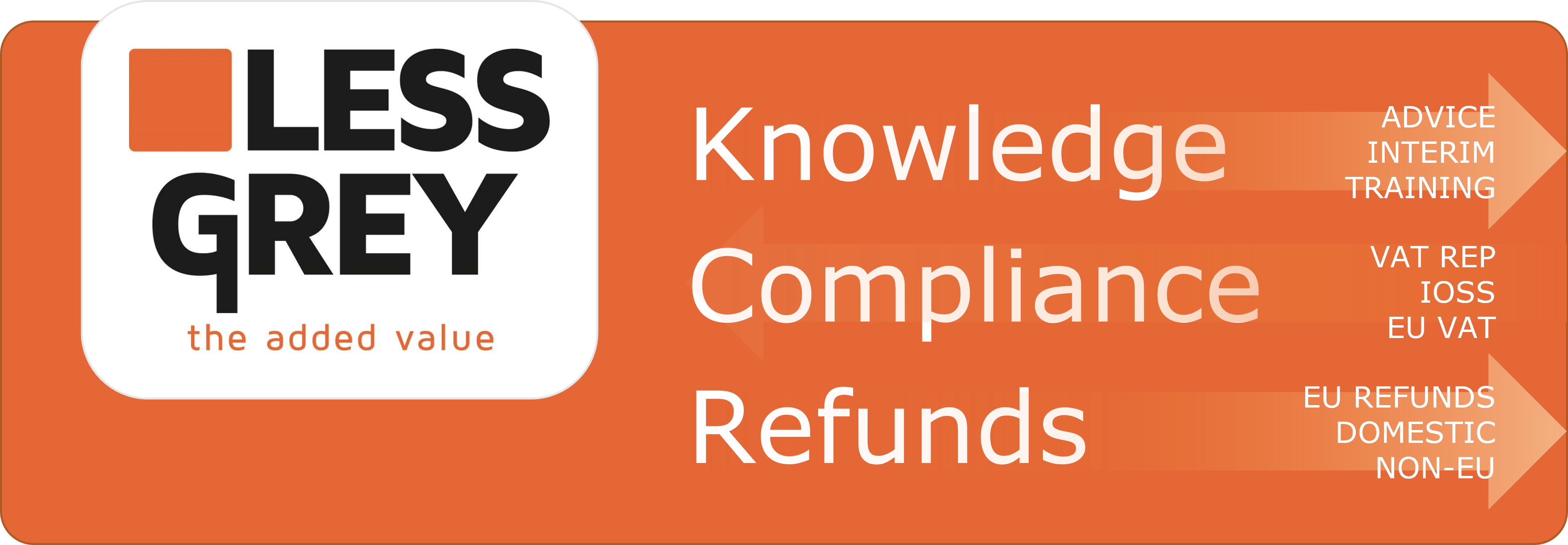On February 6, 1997, the ECJ issued its decision in the case C-80/95 (Harnas & Helm).
Context: VAT – Interpretation of Articles 4, 13 and 17 of Sixth Directive 77/388/EEC – Taxable person – Acquisition and holding of bonds
Article in the EU VAT Directive
Articles 4(2), 13(B)(d)(5) and 17(3)(c) of Sixth Directive (Articles 9, 135(1)(f), 169, 170 of the EU VAT Directive 2006/112/EC).
Article 9 (Taxable person)
1. ‘Taxable person’ shall mean any person who, independently, carries out in any place any economic activity, whatever the purpose or results of that activity.
Any activity of producers, traders or persons supplying services, including mining and agricultural activities and activities of the professions, shall be regarded as ‘economic activity’. The exploitation of tangible or intangible property for the purposes of obtaining income therefrom on a continuing basis shall in particular be regarded as an economic activity.
2. In addition to the persons referred to in paragraph 1, any person who, on an occasional basis, supplies a new means of transport, which is dispatched or transported to the customer by the vendor or the customer, or on behalf of the vendor or the customer, to a destination outside the territory of a Member State but within the territory of the Community, shall be regarded as a taxable person.
Article 135 (Exemption)
1. Member States shall exempt the following transactions
(f) transactions, including negotiation but not management or safekeeping, in shares, interests in companies or associations, debentures and other securities, but excluding documents establishing title to goods, and the rights or securities referred to in Article 15(2);
Article 169 (Right to deduct VAT)
In addition to the deduction referred to in Article 168, the taxable person shall be entitled to deduct the VAT referred to therein in so far as the goods and services are used for the purposes of the following:
(a) transactions relating to the activities referred to in the second subparagraph of Article 9(1), carried out outside the Member State in which that tax is due or paid, in respect of which VAT would be deductible if they had been carried out within that Member State;
(b) transactions which are exempt pursuant to Articles 136a, 138, 142 or 144, Articles 146 to 149, Articles 151, 152, 153 or 156, Article 157(1)(b), Articles 158 to 161 or Article 164;
(c) transactions which are exempt pursuant to points (a) to (f) of Article 135(1), where the customer is established outside the Community or where those transactions relate directly to goods to be exported out of the Community.
Article 170
All taxable persons who, within the meaning of Article 1 of Directive 86/560/EEC ( 1 ), Article 2(1) and Article 3 of Directive 2008/9/EC ( 2 ) and Article 171 of this Directive, are not established in the Member State in which they purchase goods and services or import goods subject to VAT shall be entitled to obtain a refund of that VAT insofar as the goods and services are used for the purposes of the following:
(a) transactions referred to in Article 169;
(b) transactions for which the tax is solely payable by the customer in accordance with Articles 194 to 197 or Article 199.
Facts
- It appears from the documents before the Court that Harnas, which is established in Amsterdam, held, at least from 1 January 1987 to 1 March 1991, shares and bonds issued by bodies and undertakings in the United States of America and Canada. During the relevant period, Harnas received dividends or interest on those shares and bonds.
- In 1984, Harnas made a loan to the undertaking All American Metals, which was redeemed on 16 April 1987. On 1 July 1992, it made a loan to another borrower, Opticast International Corporation. In its tax return, Harnas deducted the VAT which it had been charged in connection with those transactions.
- The tax inspector, considering that, as from 17 April 1987, Harnas could not be regarded as a trader within the meaning of Article 7 of the Wet op de Omzetbelasting 1968 Netherlands Law on Turnover Tax), issued a reassessment notice to recover the amount of the VAT which Harnas had deducted in respect of the period between 17 April 1987 and 1 March 1991 inclusive, namely HFL 124 517.
- The Gerechtshof (Regional Court of Appeal), Amsterdam, dismissed Harnas’s appeal against that notice on the ground that it had not carried out any economic activity within the meaning of Article 4(2) of the Sixth Directive during the period to which the reassessment related and could therefore not be classed as a taxable person within the meaning of Article 4(1). Nor, the Gerechtshof found, did the acquisition of bonds constitute the granting of credit within the meaning of the Sixth Directive. Whilst acknowledging that a bond issue supplied the financial needs of the debtor, the Gerechtshof considered that it created a security with rights likely to attract interest on the financial markets.
Questions
- l) Are the mere acquisition of ownership in and the holding of bonds — claims embodied in marketable securities —, activities which are not subservient to any other business activity, and the receipt of income therefrom to be regarded as economic activities within the meaning of Article 4(2) of the Sixth Directive?
- 2) If that question has to be answered in the affirmative, should those activities be regarded as transactions, within the meaning of Article 13B(d)(l) or (5) of the Sixth Directive, which, in so far as they relate to bonds issued by a body established outside the Community, confer an entitlement to deduct the input tax imposed on the possession and management of the bonds as a result of Article 17(3)(c) of the Sixth Directive?
- 3) If Question 2 has to be answered in the affirmative, in the event that a taxable person carrying out the activities referred to in the foregoing questions is also the holder of shares, which, according to that which the Court of Justice held in particular in its judgment of 22 June 1993 in Case C-333/91 Sofitam, fall outside the scope of value added tax, can the input tax charged to that taxable person be deducted in full or is the input tax relating to the possession of the shares debarred from being deducted?
- 4) If Question 3 must be answered in the latter sense, according to what yardstick must the amount disqualified from deduction be calculated?
AG Opinion
- (1) The mere acquisition of ownership in and the holding of bonds, and the receipt of income therefrom, cannot, where they are not the direct, permanent and necessary extension of another business or commercial activity, be regarded as economic activities within the meaning of Article 4(2) of the Sixth Council Directive 77/3 8 8/EEC of 17 May 1977 on the harmonization of the laws of the Member States relating to turnover taxes — Common system of value added tax: uniform basis of assessment.
If, however, the Court considers that the activities specified in respect of my proposed answer to the first question should be regarded as economic activities for the purposes of Article 4(2) of the Sixth Council Directive, I recommend that the second, third and fourth questions referred by the national court be answered as follows:
- (2) Article 17(3)(c) of the Sixth Council Directive confers a right on a taxable person to deduct VAT inputs incurred on services provided to him in so far as they are used by that person for the purposes of acquiring ownership in and holding bonds, and obtaining income therefrom, so long as those bonds are issued by public bodies or companies who are established outside the Community.
- (3) A taxable person carrying on the activities described in the preceding answers who also engages in the activity of acquiring holdings of shares which falls outside the scope of VAT and whose VAT inputs relate both to his bond and share-holding activities, is only entitled to exercise the right to deduct conferred by Article 17(3)(c) of the Sixth Council Directive in respect of the proportion of the inputs which relate to the first-mentioned bond activities, in so far as he is capable of demonstrating the relationship to the satisfaction of the appropriate tax authorities.
Decision
Article 4(2) of the Sixth Council Directive 77/388/EEC of 17 May 1977 on the harmonization of the laws of the Member States relating to turnover taxes — Common system of value added tax: uniform basis of assessment is to be interpreted as meaning that the mere acquisition of ownership in and the holding of bonds, activities which are not subservient to any other business activity, and the receipt of income therefrom are not to be regarded as economic activities conferring on the person concerned the status of a taxable person.
Summary
- Article 4(2) of the Sixth Directive must be interpreted as meaning that the mere acquisition and holding of bonds which are not used for any other business activity and the enjoyment of income from them cannot be regarded as economic activities which grant the person concerned the status of taxable person.
Source
Similar ECJ cases
Newsletters















